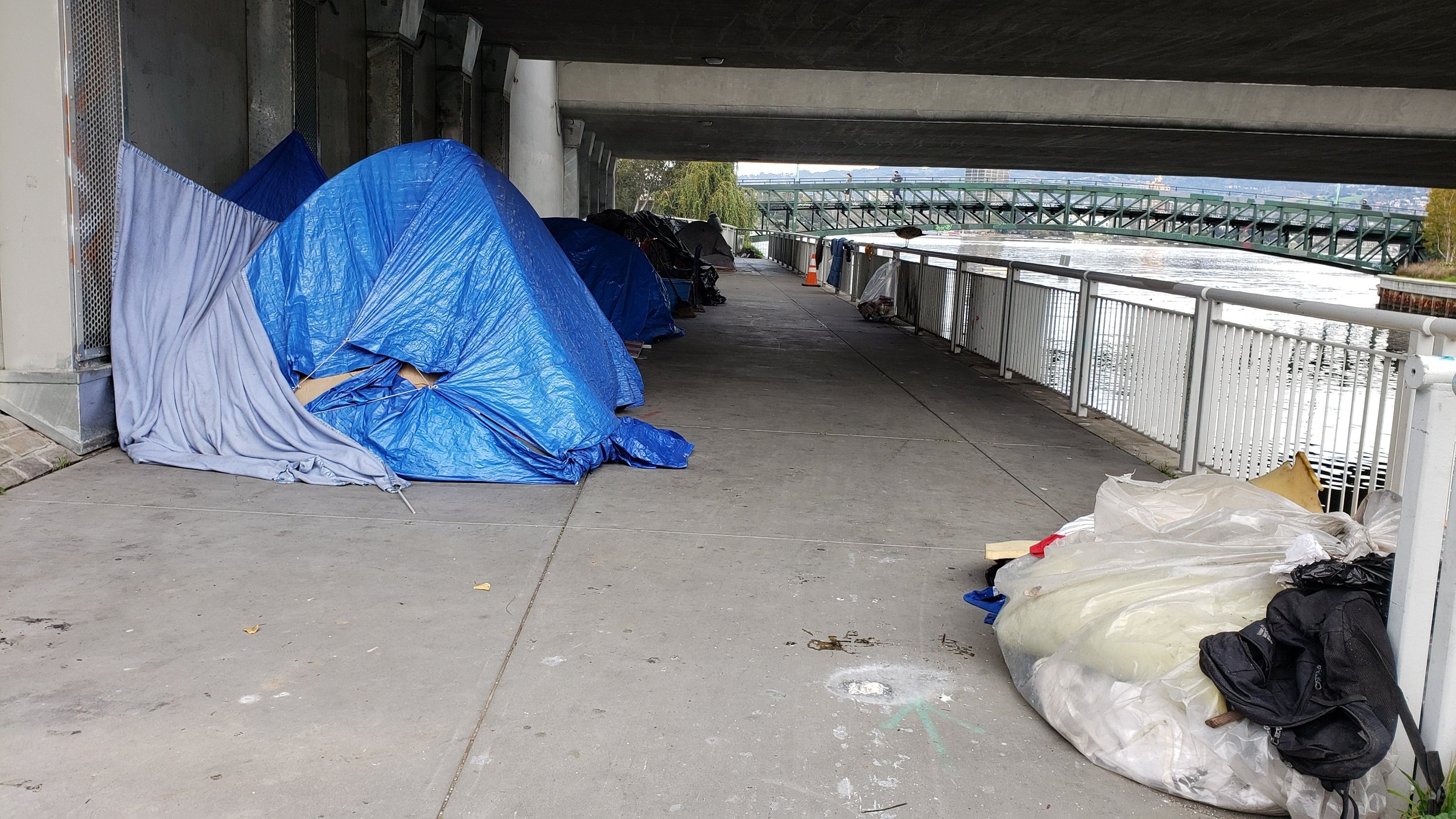
Executive Summary
Objective:
This semi-structured interview seeks to explore the impact of gentrification on long-time residents in the Bay Area, with a specific focus on the African American community in Oakland. The goal is to understand personal experiences, perceived community changes, and expectations for the future amidst shifting cultural and economic dynamics. This is more of a qualitative study.
Parcticipant Demographic Overview
Age: 42 years old
Gender: Male
Race/Ethnicity: Black/African American
Occupation: Emergency Room Nurse
Location: Oakland, California
Education: Bachelor's degree in Nursing (BSN)
Income: $100,000–$150,000 annually
Housing: Rents a 3 bed room apartment
Age: 37 years old
Gender: Female
Race/Ethnicity: African American | Ohlone Native American mix
Occupation: Accountant
Location: Oakland, California
Education: Bachelor's degree in Finance
Income: Bay Area $110,000 annually
Housing: Rents apartment.
Background and Personal History
How long have you lived in your neighborhood, and how old are you?”
Participant 1:
I have lived in Oakland all of my life. I was born here, and my grandparents migrated here from the South. I am 42 years old.
Participant 2:
I have been in the West Oakland neighborhood for about 8 years and I am 37
What originally drew you to this area, and what has kept you here?”
Participant 1:
I am from the East, but the West was close to my gig at Kaiser so I shifted for convenience. I was trying to find something near the Lake but lucked out on a new development in the West.
Participant 2:
I don’t know anything else to be honest. I grew up in the Bay and can’t imagine anything else, but I am African American and Ohlone Native, so I am rooted if you know, you know.
2. Perceptions of Community Changes
How would you describe the changes you’ve noticed in your community over the years?
Participant 1:
It’s most definitely different from the city I grew up in, but I can’t say I am tripping, I do me and pretty much have my friends and support intact.
Participant 2:
It makes me very uneasy because I feel they will leave if they don’t get the gains they want and we will have to pick up the pieces. Some people do what they want and move wherever they want because they can. For people of color, some regions strip us of community so places like the Bay are where we feel comfortable. I am mixed with Ohlone Native, so this goes back a long time on my mother's side.
What role do you believe gentrification has played in these changes?
Participant 1:
It has everything to do with it. It’s money here, and people go where the money is. How long the money will be here is something that concerns me, because corporations are relocating.
Participant 2:
Gentrification changes a lot but I am not against mixing things up because I am mixed. As long as there is respect.
3. Impact on Personal Life and Community
Have these changes affected your daily life, housing situation, or sense of community?
Participant 1:
My friend group is most definitely expanding, and housing is a strain for everyone right now. I have a nice career, but I feel like I would lose out on some freedoms if I had a kid. I would probably leave because I can’t see how I would provide my kids the life I want to give them without leaving, but I have to scale up before I can do that because I refuse to allow my kid to struggle as I did.
Participant 2:
I think everyone's life has changed if you really look at it. The transplants and the indigenous residents are trying to survive the economy and coexist. Nothing here is cheap for anyone and I am a mom who always wanted a larger family but I have 1 daughter and gave up on more children a long time ago. I’m just realizing what we want and what opportunities we actually get aren’t always up to us.
What are the positive and negative aspects of these changes for you personally?
Participant 1:
The positives are that there are opportunities to hustle in the Bay. I do see more black businesses being solicited by people outside the black community. The negative is that we still have a long way to go because we live among each other but only a few of us actually really embrace each other. There are no white people at my cookouts and I know a black face at the white cookout is rare.
Participant 2:
The positives are that they bring more opportunities from top to bottom. The negatives are that many of us are still on the outside and sinking.
4. Cultural and Social Shifts
Do you feel that the cultural or racial makeup of the community has changed?
Participant 1:
It has most definitely changed, but what I make of it is mixed feelings. I don’t trip off living with other communities, to be honest just as long as there are opportunities for black people I don’t trip.
Participant 2:
Yes, but it’s overall not just black and white. It is tech, finance, and everything that builds the economies in this area. It’s some smart people, and some people just hustling the service gigs, but people move where opportunities are. If all this was popping off somewhere else that’s where people would go, maybe not Black people because the projects have done a number on us.
How has this impacted the cultural traditions or sense of identity within your neighborhood?
Participant 1:
I don’t know really, I think because of my generation we are more so about opportunities. My view of culture might be different from other people, but I feel that diversity can also bring opportunity because being black is cool and the right creativity and appeal can plug you.
Participant 2:
As I have gotten older culture has become really important, but the whole definition of who I am is about accepting loss. When you think of gentrification it’s migrating toward opportunity for some, but it’s the continued legacy of imperialism for others.
5. Future Outlook
Where do you see the future of this neighborhood in the next 5-10 years?
Participant 1:
I see the future kind of where it is now. I feel many will move in and out based on whether the community serves their needs. Let’s be honest: most non-Black and non-Hispanic kids are at one high school in North Oakland, and if you go to that campus, it’s segregated for the most part. These areas are fine when people are single or without kids, but when they have kids, they are forced to deal with the community beyond just work or economic gains, and many realize they haven’t been actually integrated into West Oakland at all.
Participant 2:
In 5 to 10 years it will continue to be gentrified but most will be on rotation. Many transplants didn’t grow up here, they are just here for their jobs and this is just a season for many.
What concerns or hopes do you have for yourself and other residents?”
Participant 1:
In an ideal world, I would love for many of us to hold on and for us to gain stability, but I don’t see it happening. You see developments everywhere, and none of it is affordable.
Participant 2:
I can’t say because the homelessness is overwhelming. I feel like the majority of this area will be rentals where residents will come and go. If the community can hold on then maybe some of the culture will stay. Otherwise, my concern is that we are experiencing a slow death.
Key Findings:
1.Background and Connection to Neighborhoods:
Long-time residents like Participant 1 have deep familial and cultural roots in Oakland, often tied to migration histories and community bonds.
Newer residents, such as Participant 2, are drawn by practical factors like proximity to work and opportunities but still feel culturally connected to the area.
2. Perceptions of Community Changes:
Both participants recognize significant shifts in their neighborhoods. Participant 1 views the changes pragmatically, acknowledging economic drivers. Participant 2 expresses unease about transient populations and the potential erosion of community identity.
Gentrification is universally seen as a catalyst for these changes, tied to economic opportunity but also to displacement and loss of cultural heritage.
3. Impact on Personal Life and Community:
Rising costs and limited affordable housing strain residents long-term stability.
Participants note positives, such as new business opportunities, but also highlight challenges like segregation and strained community cohesion.
4. Cultural and Social Shifts:
Cultural diversity is seen as a double-edged sword: while it fosters opportunity, it risks overshadowing long-standing traditions.
Participant 2 ties gentrification to broader legacies of displacement and loss, reflecting concerns over identity preservation.
5. Future Outlook:
Both participants foresee continued gentrification, with many residents being replaced by transient populations.
Concerns about affordability and homelessness dominate, alongside fears of cultural erosion. However, there is some optimism for economic and creative opportunities if communities can adapt and retain their identity.
Conclusion:
Gentrification in Oakland reflects a complex intersection of economic opportunity, cultural shifts, and community displacement. While some residents adapt to and even embrace certain changes, the overarching narrative is one of uncertainty and a struggle for balance between growth and preservation. Addressing these issues requires thoughtful urban planning and policies that prioritize long-term residents’ needs and cultural heritage while accommodating economic development.





